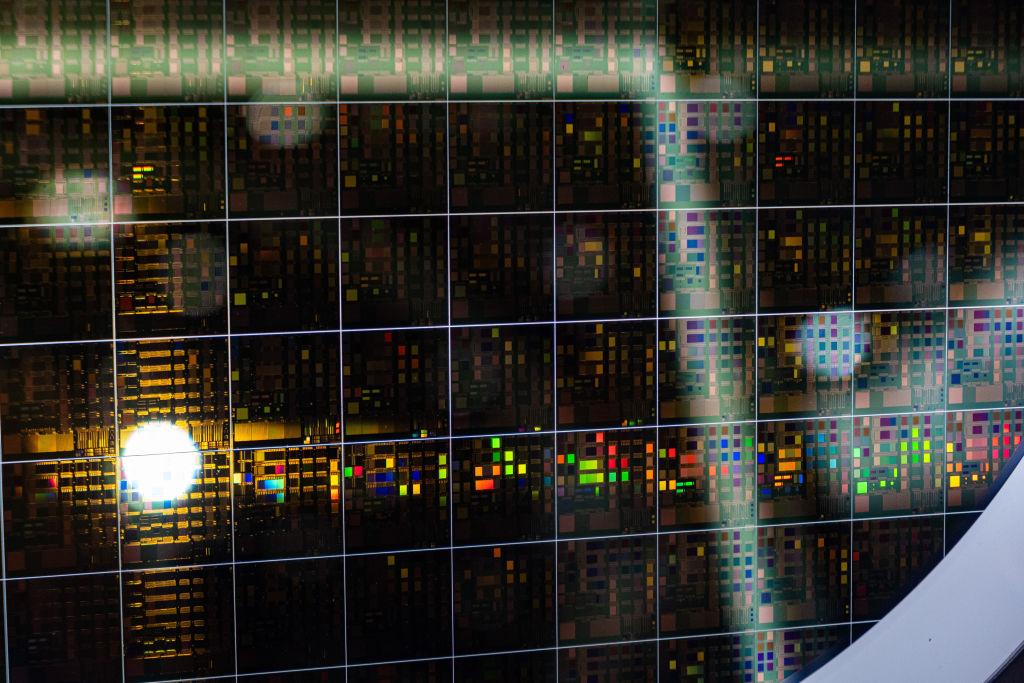Establishing a semiconductor cradle in the Northern Territory
Posted By Elena Yi-Ching Ho on May 21, 2021 @ 15:07

Two major infrastructure projects, HyperOne [1] and Project Echo [2], in conjunction with the Northern Territory government’s ‘Terabit Territory [3]’ plan, have set Darwin on its way to becoming Australia’s national digital hub and the linchpin of telecommunications connecting the United States with the region.
These projects are expected to provide Darwin with a powerful foundation on which to develop its cyber capability—with the goal of becoming home to Australia’s first science industrial park, manufacturing semiconductor chips.
The challenges presented by growing regional tensions and a post-Covid appetite for a radical rethink of what nation-building means make now a time for bolder action.
Australia cannot simply conjure up a semiconductor industry, but increasing [4] research and development spending, encouraging private sector investment and seeking resources and a suitable location to build such an industrial park would be a good start.
Increasing strategic rivalry between the US and China has created tensions that have alerted countries [5] relying on Taiwan’s semiconductor industry to their own vulnerabilities.
Since the pandemic began, countries have been reassessing their own critical technologies. After the US, Japan and European Union suffered major disruptions to their semiconductor supply networks, President Joe Biden signed an executive order in February reviewing his country’s critical supply chains. The US and Japan [6] are increasing investment in semiconductor development.
Australia badly needs a clear plan. We may not have felt the impact of semiconductor industry fluctuations as much as other countries, but not having a secure supply chain is a major ‘sovereign capability risk [7]’ that could make us very vulnerable in the increasingly turbulent regional environment.
The Taiwan Semiconductor Manufacturing Company (TSMC) has been recognised [8] as the world’s most successful chip manufacturer and it’s not the only successful example of Taiwan’s high-technology capability. The cradle [9] of its technology development was Hsinchu Science Park.
Constructed in the 1980s, the park nurtured semiconductor companies such as TSMC, United Microelectronics Corporation and MediaTek [10] and also attracted major foreign companies such as ASML, Intel and Lam Research to invest in Taiwan. Besides its technological importance, it boosted the city’s economy and infrastructure development and encouraged skilled workers to relocate there.
Finding an ideal location for a science park was not easy, nor was operating and maintaining it. Taiwan faces the constant threat of natural disasters such as earthquakes and typhoons, and droughts [11] and floods are also becoming a new normal. The need for a stable electricity supply is constantly discussed [12]. Yet, Taiwan has managed to keep those problems under control through careful planning.
When Taiwan first constructed Hsinchu Science Park, key criteria included the availability of a site larger than 300 hectares, and access to more than 36,000 tonnes of water daily.
Australia should look to Hsinchu Science Park as a model for such an establishment in Darwin. As with all major infrastructure projects north of 26 degrees south, raising the necessary investment will be a challenge.
However, Australia urgently needs to address the implications of worsening tensions in the South China Sea, China–Taiwan cross-strait issues [13], and its defence capability generally.
James Andrew Lewis from the Center for Strategic and International Studies has written [14] that investment in technology is crucial for defence and the semiconductor industry is ‘the backbone of economic and military performance in the digital age’. It will be ambitious for Australia to aim to provide all of its own semiconductors, but constructing a science industrial park would be a significant start while also bringing investment to the NT.
Apart from the Taiwanese park’s geography, its planners also noted the need for technological capability, funding, management and skilled people. Darwin has yet to tick all of these boxes but therein lies the opportunity.
Finding a suitable site should not be problem as Darwin’s population and infrastructure are not overly concentrated. Although the city faces water shortages, the NT government has attempted to address the issue through the ‘Darwin region water supply strategy [15]’ with a new pumping station and more storage. The government has also set up a renewable energy roadmap [16] to gradually replace fossil fuels with cheaper, more secure and more eco-friendly power.
The Australian Defence Force recognises [17] northern Australia’s geographic and strategic importance [18]. Establishing a science industrial park in Darwin would further advance Australia’s defence technology strategy while helping to solve semiconductor supply chain issues.
As John Coyne notes in ASPI’s special report [19], ‘Thinking big!’: Resetting northern Australia’s national security posture, without a socially and economically prosperous northern Australia, there’ll be insufficient industry and infrastructure support for future defence operations, including regional engagement and power projection. Building a science industrial park in Darwin would enhance Australia’s technological capability and provide a powerful base to start its own semiconductor industry.
Article printed from The Strategist: https://aspistrategist.ru
URL to article: /establishing-a-semiconductor-cradle-in-the-northern-territory/
URLs in this post:
[1] HyperOne: https://hyper.one/press-release/
[2] Project Echo: https://www.businessinsider.com.au/facebook-google-fund-new-internet-cables-us-asia-bifrost-echo-2021-3?r=US&IR=T
[3] Terabit Territory: https://cmc.nt.gov.au/advancing-industry/terabit-territory
[4] increasing: https://www.mckinsey.com/industries/advanced-electronics/our-insights/semiconductor-design-and-manufacturing-achieving-leading-edge-capabilities
[5] countries: https://www.reuters.com/article/us-usa-semiconductors-subsidies-idUSKBN2BI1CY
[6] Japan: https://au.finance.yahoo.com/news/japan-boost-spending-promote-local-221546186.html
[7] sovereign capability risk: https://www.news.com.au/technology/gadgets/80bn-unexpected-economic-crisis-about-to-hit/news-story/2e09eebafc557ef53e6cdd8d22703ce1
[8] recognised: https://www.economist.com/business/2021/04/29/how-tsmc-has-mastered-the-geopolitics-of-chipmaking
[9] cradle: https://money.udn.com/money/story/5612/5095240
[10] United Microelectronics Corporation and MediaTek: https://news.cnyes.com/news/id/4552036
[11] droughts: https://apnews.com/article/taiwan-droughts-lifestyle-travel-business-9c6e7493e89c8f3e87fd5e9929056daa
[12] discussed: https://tpcjournal.taipower.com.tw/article/1233
[13] cross-strait issues: /semiconductors-as-a-shield-for-taiwan/
[14] written: https://www.csis.org/analysis/semiconductors-and-modern-defense-spending
[15] Darwin region water supply strategy: https://www.powerwater.com.au/__data/assets/pdf_file/0019/8443/2013-Power-and-Water-Corporation-Darwin-Region-Water-Supply-Strategy.pdf
[16] renewable energy roadmap: https://roadmaptorenewables.nt.gov.au/?a=460760
[17] recognises: https://www.aph.gov.au/About_Parliament/Parliamentary_Departments/Parliamentary_Library/pubs/rp/rp1516/ADFNthAust
[18] importance: /why-darwin-should-be-the-crossroads-of-the-quad/
[19] special report: https://www.aspistrategist.ru/report/thinking-big-resetting-northern-australias-national-security-posture
Click here to print.